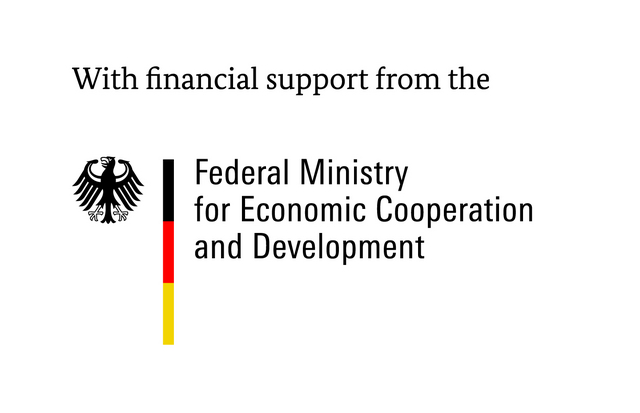 by travelphotographer on Pixabay
by travelphotographer on Pixabay
Decarbonising Cities: Assessing Governance Approaches for Transformative Change
Decarbonising Cities: Assessing Governance Approaches for Transformative Change
The “Decarbonising Cities” project focuses on the topic of sustainable urban development. The team analyses governance approaches and impact assessments in cities that are engaged in transformative action towards zero emissions. More specifically, the research addresses the following question: Which governance approaches facilitate successful transformative change towards zero carbon cities? The focus thereby lies on actor constellations, financial resources, and impact assessment.
The research is affiliated to a larger project on “Transformative Urban Coalitions: Catalysing Urban Partnerships to Drive Systemic Transformation Towards Sustainability” (IKI-TUC), financed by the German Federal Ministry of the Environment, Nature Conservation, and Nuclear Safety (BMU) under its International Climate Initiative (IKI). IKI-TUC is going to implement pilot projects in five Latin American urban labs. One of DIE’s main roles in this project will be to set up and conduct impact-oriented accompanying research jointly with local partners. “Decarbonizing Cities” is designed as preparatory and supportive research for this larger project.
The “Decarbonising Cities” project presented here follows a two-stage research approach: In a first step, an online survey is conducted with several hundred city government officials worldwide. In a second step, the research team carries out in-depth case studies to gain deeper insights. The approach aims at identifying success factors and obstacles for socio-ecologic transformation in cities.
Team
Project Lead:
Christian von Haldenwang
Function: Senior Researcher
Specialisation: Political Science
E-Mail: Christian.vonHaldenwang@idos-research.de
Phone: +49 (0)228 94927-282
Project Co-Lead:
Michael Roll
Function: Researcher
Specialisation: Sociology
E-Mail: Michael.Roll@idos-research.de
Phone: +49 (0)228 94927-212
Project Team:
Christina Grohmann
Function: Postgraduate Research Fellow
Specialisation: Development Economics
Maria Elisabeth Gronen
Function: Postgraduate Research Fellow
Specialisation: Societies, Globalisation and Development
Anne Laible
Function: Postgraduate Research Fellow
Specialisation: Development Economics
Johanna Orth
Function: Postgraduate Research Fellow
Specialisation: Development Economics
Florian Wengel
Function: Postgraduate Research Fellow
Specialisation: International Economics
Lisa Zumegen
Function: Postgraduate Research Fellow
Specialisation: International Political Economy
Project Motivation
Cities have a unique role to play in our time of climate crisis. Not only do they account for about 75 per cent of greenhouse gas emissions worldwide and 70 per cent of energy use, but in many places, urban populations and infrastructures are also at a particularly high risk due to climate change. Still, by 2050 about two-thirds of the global population will foreseeably be living in cities. Therefore, the 21st century is predicted to be the century of the cities.
As a result, local governments have become increasingly important to enact adaptive policies to reduce greenhouse gas emissions in order to protect people and planet. Many scholars agree that incremental reforms are not enough facing climate change. Instead, more profound and comprehensive change in the institutional, social, and economic sphere is needed – transformative change.
City Sample Selection
To prepare the international survey and the case studies, the team performed desktop research to identify cities worldwide that are active in international sustainability networks, such as ICLEI – Local Governments for Sustainability, or have participated in international sustainability awards, such as the WRI Ross Prize for Sustainable Cities. These selection criteria ensure that the city sample includes those cities that are, through their own initiative, particularly involved in socio-ecological change. The full list of city networks and awards covered can be downloaded below.
In distributing the survey, the “Decarbonising Cities” project works closely with ICLEI – Local Governments for Sustainability (more than 1700 member cities) and other international sustainability networks with more than 100 member cities. In addition, a new database of cities that are active in networks with less than 100 members or that have participated in the above-mentioned awards has been created. This database covers 875 cities from all over the globe. Have a look at how these active cities are distributed by world region.
Project Timeline
The “Decarbonising Cities” project runs until May 31st, 2021. In March and April 2021, the team focuses on data collection and analysis of the worldwide city survey and the city case studies. The insights will contribute to the successful start of the aforementioned IKI-TUC project. The final report of the “Decarbonising Cities” project will be made publicly available in mid-2021.
For more information, please refer to our project timeline.
Downloads
Executive Summary of the Inception Report
List of city networks and awards covered
The inception report can be requested via email. Please contact us at decarbonisingcities@idos-research.de





